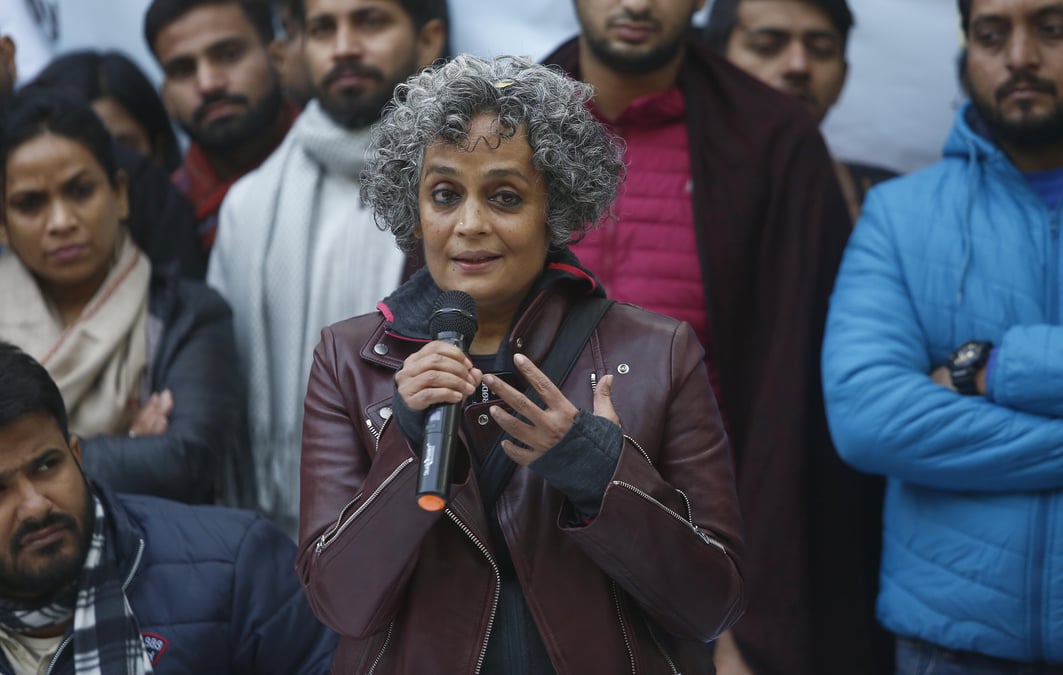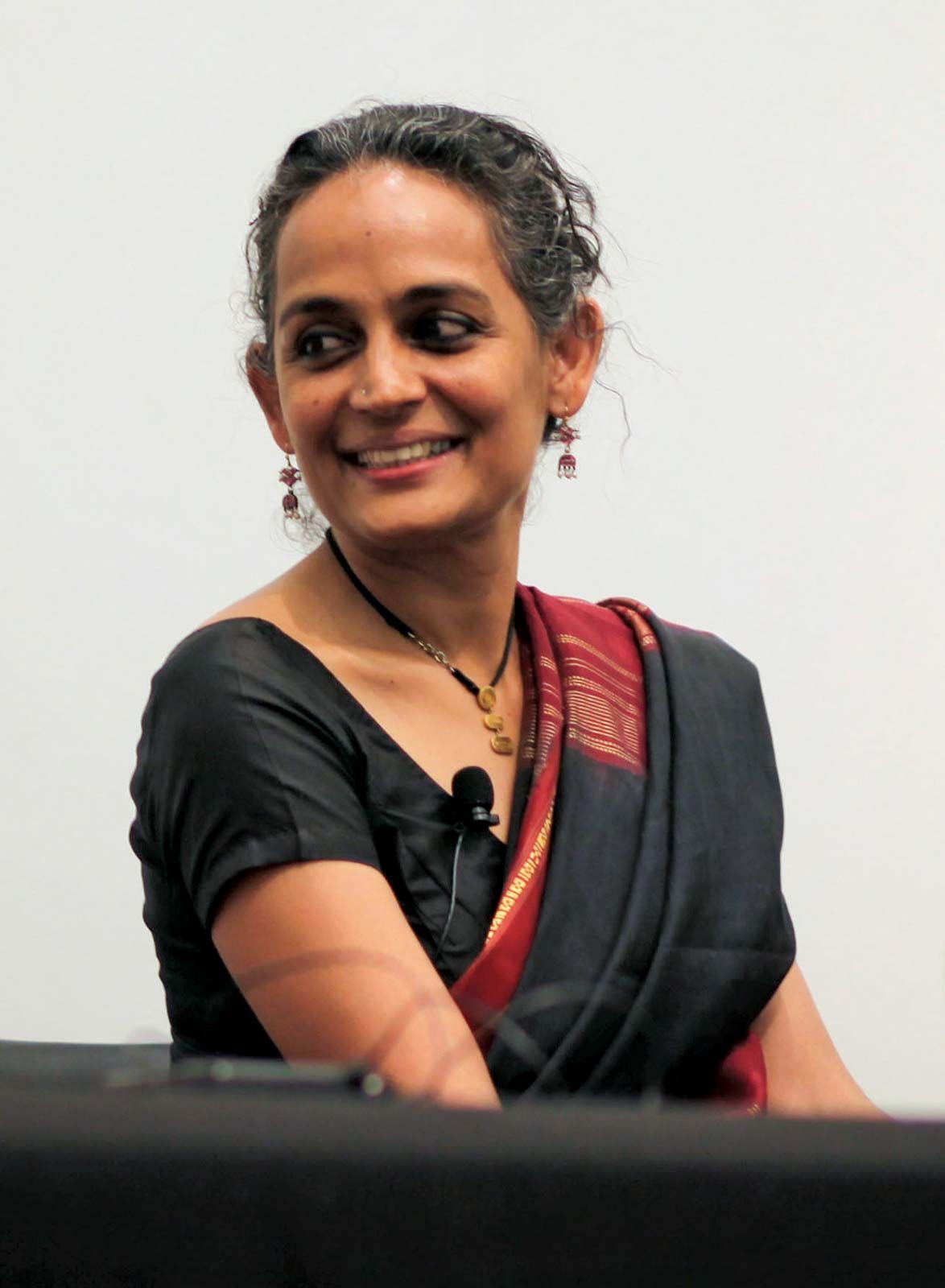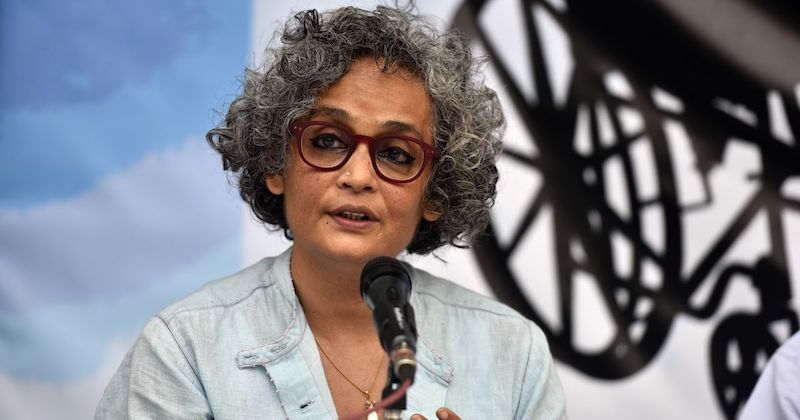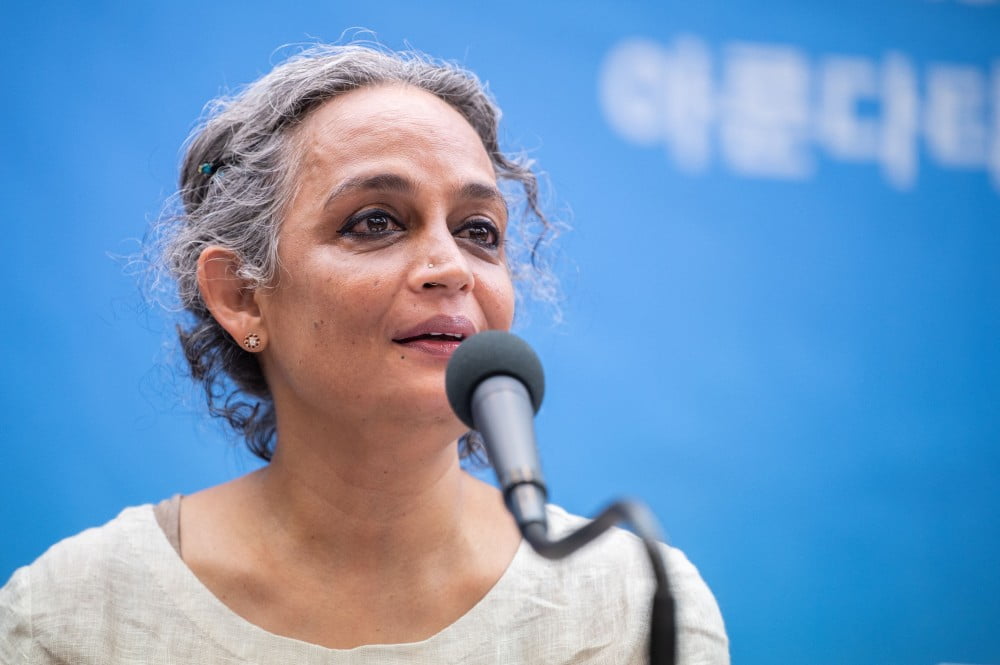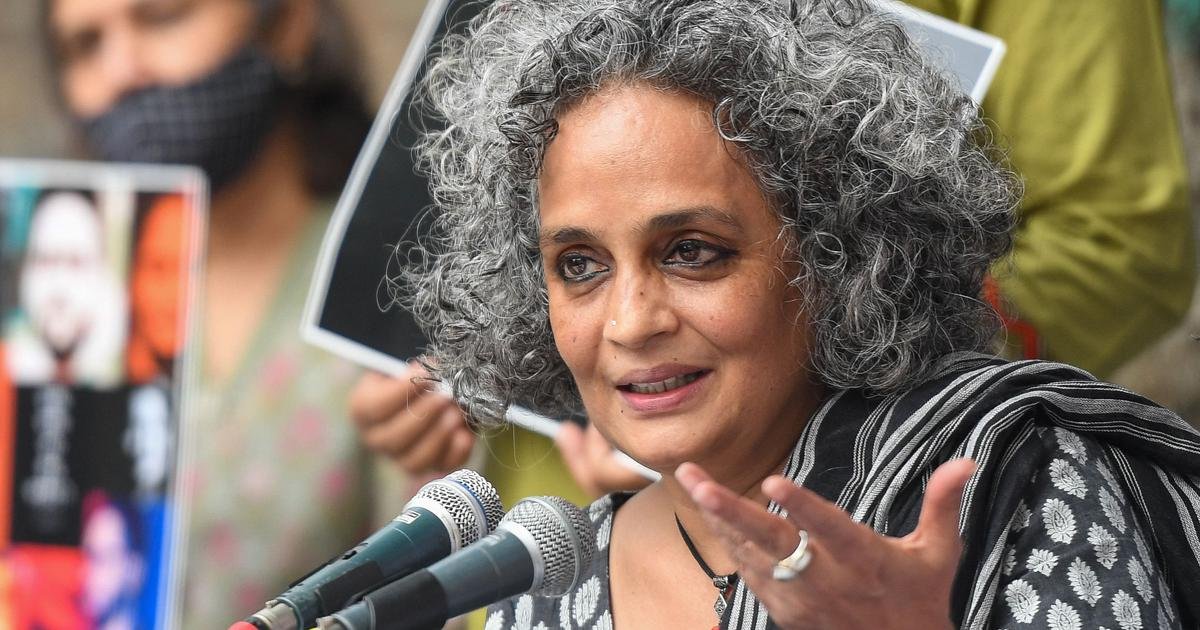Despite being celebrated as an Indian author and activist, Arundhati Roy has regularly been caught up in numerous legal controversies stemming from her frank and analytical positions on different socio-political phenomena, which have triggered a wide range of oppositions. Consequently, from time to time she has faced charges that emphasise the conflicting nature of civil disobedience and legislation in the country.
Consequently, from time to time she has faced charges that emphasise the conflicting nature of civil disobedience and legislation in the country.
In 2001, the court accused Roy of being critical of the decision made by the Supreme Court of India about the Sardar Sarovar Dam on the Narmada River. Therefore, her paper that was entitled ‘The Greater Common Good’, tried to make the whole world know what was happening to these displaced tribal groups which attracted duress. She was paraded past Mahatma Gandhi`s tomb and then jailed for a day as punishment. A fine was levied as well.
In 2010, a significant legal battle arose when Roy was accused of sedition, in relation to her address at a Kashmir conference. An assertion she made that the region is not an integral part of India caused an uproar of protests with counter accusations on her charging her with incitement and sharing (distributing) distorted (fake) information. This case has been revisited again in the year 2023 after approval of registering her to court by Delhi’s Lieutenant Governor who pointed out further interrogation over her political statements.
Between 2019 and 2020 Roy was the centre of yet more controversy during the anti-Citizenship Amendment Act (CAA) protests. She faced allegations that she had instigated violence through inflammatory remarks leading to calls from some quarters for the government to arrest her on official charges concerning an attempt at misleading persons involved in the National Population Register (NPR). Despite the outcry over these alleged actions;there was no arrest made on such grounds because there were no binding accusations against her as such.
According to a Video report of Newslaundry in 2023, Roy participated in protests against the crackdown on independent media outlet NewsClick. The renewed accusations related to her 2010 speech show a trend in which legal tools are used to suppress opposing views. The most current case implicating Roy was framed within the parameters of the legal framework of the Unlawful Activities Prevention Act (UAPA), an anti-terror legislation that has drawn criticism for its possible abuse against dissidents.
The various legal battles Roy faces highlight the persistent harassment she is subjected to as she stands up for the right to speak out against the government of her country; writing at length about these problems illustrates far greater issues pertaining to freedom of expression and opposing viewpoints within today’s India. What she personally goes through is symptomatic of many of those involved in public debate – ranging from scholars through journalists all the way down to activists practising civil disobedience.
What are the sedition charges against Roy?
The Unlawful Activities Prevention Act (UAPA) prosecution of India’s well-known writer and social activist Arundhati Roy has recently stirred up discussions once more about liberty, governance and freedom of expression in the country. This court case has its origin in a 2010 complaint and is a vivid illustration of the conflict between rebellion and power in the most populous democracy on earth.
Roy, could be charged with serious offences following comments made regarding Kashmir fourteen years ago after the Bharatiya Janata Party’s official on Friday permitted her to be prosecuted under a stringent anti-terrorism act.
Roy could be charged with serious offences following comments made regarding Kashmir fourteen years ago after the Bharatiya Janata Party’s official on Friday permitted her to be prosecuted under a stringent anti-terrorism act. A few days ago, Narendra Modi was sworn in for a third term and just recently one of the most vocal critics of the ruling party has been charged under India’s contentious terrorism provision, which is widely interpreted to show a reaffirmation of might from Modi’s side.
Although Modi was obligated this week to create a new coalition government after an upset election outcome on June 4th decreased his seat count in Parliament, the Indian leader has projected an image of assurance by keeping his cabinet unchanged at important positions and promising to intensify his fight against corrupt political opponents.
The move was further defended by some of BJP’s spokespeople who painted Roy as a traitor funded by the opposition Congress party.
The office of V.K. Saxena, the BJP Lieutenant Governor of New Delhi who approved Roy’s anti-terrorism case, indicated that investigative agencies applied for the utilisation of Unlawful Activities (Prevention) Act in this case by which Saxena requested it. The move was further defended by some of BJP’s spokespeople who painted Roy as a traitor funded by the opposition Congress party. In a prime time discussion show, Tuhin Sinha, BJP’s national spokesperson accused Roy of intending to lower the morale of the Indian Army. Shehzad Poonawalla another BJP spokesperson in a published video statement on X likened the author to terrorists serving sentences.
Historical context and legal framework of Roy’s case
The early signs of the current legal action began to show in 2010 when Arundhati Roy contributed to a conference in New Delhi where she asserted some controversial ideas concerning the conflict in Kashmir. Those particular statements by Roy that seemed to doubt the authority of India in Kashmir caused a lot of angry reactions among nationalist groups. As a result, someone reported her to the police on charges of treason as per provisions contained in section 124A of the Indian Penal Code (IPC).
Suppressing discord through arrest has been on the rise, especially by applying the colonial-era law of sedition. Eventually, the allegations levelled against Roy were switched with regard to the UAPA, a ruthless anti-terrorist law. Following its disputed 2019 amendments, the UAPA equips the administration with substantial abilities in categorising persons as terrorists, denying them any hearing hence prompting fears around its probable application in restricting liberty of speech.
Current legal proceedings
Substantial interest has been attracted to recent occurrences surrounding the situation of Roy. Pointing to potential conflict provocation/text incitement and risks to national unity, the prosecution maintained that Roy should be penalised under the UAPA based on her Kashmir comments. It is also defended that her speech is protected by Article 19 of the Indian Constitution because it falls into the category of free speech.
Legal scholars and human rights advocates have given their thoughts on the case indicating concerns about the effects such prosecutions could have on democratic conversation from a few points of view. Prominent lawyer Prashant Bhushan is quoted as saying ‘Using UAPA against an intellectual such as Arundhati Roy sets a dangerous precedent for criminalising dissent’. Such a feeling resounds within the legal circle who are worried lest this case opens the floor for more violations of our basic freedoms.
Political and social repercussions of Arundhati Roy’s trial
Still, we cannot view Roy’s trial in isolation from the larger political situation. It is in the framework of a resurgence in nationalism under the current government and attempts by the regime to stem other ideas because of which Roy is being tried. The government has resorted to the employment of laws like the UAPA in order to silence opposition groups as well as reinforce its authority; this approach has not gone without criticism.
The public has responded differently. Roy believes that her persecution is political in nature, while nationalists believe it is indispensable in fostering unity within a given state; Civil society gives an instance where they view free speech as being compromised with persecution. Indeed, Roys public criticism makes no relevance for charges against her as she points finger at politicians for coming up with those allegations. In one of her recent op-eds she wrote, ‘This isn’t personal; it’s about an ever-shrinking space allowed for dissenting voices in our democratic set up.’
Comparative analysis
Like other high-profile examples of sedition and UAPA charges, Roy’s case resonates with similar controversies internationally. In Hong Kong, for instance, pro-democracy activists were charged under the National Security Law, which sparked similar debates. Sedition or UAPA charges were also brought forth against student leader Kanhaiya Kumar and journalist Siddique Kappan, in India, owing to their outspoken views.
What becomes apparent from these parallels is a worldwide shift that sees countries enact severe legislation to suppress rebellion. On the other hand, they show how well-established democratic systems manage against oppressive actions from governments (Clapperton 2011). In this sense Roy’s story is symbolic: it signifies the borderlines that separate tyranny and liberty worldwide when it comes down to it.
The arrest of Arundhati Roy using UAPA is actually a lot more than a mere legal tussle; it will serve as an acid test on Indian democratic tenets. It questions whether individual liberty should be sacrificed for the sake of national security thereby making people think deeply about how much power the government ought to have over speech. In the unfolding of this case, we will undoubtedly see a change in the way we think about civil rights and government functions in India and other countries as well; in essence, it highlights an ever-present conflict between freedom and control that characterises democratic societies.
If, however, the charges were proven true, then we should be worried that we are witnessing a dangerous trend where disagreement is declared a crime.
If, however, the charges were proven true, then we should be worried that we are witnessing a dangerous trend where disagreement is declared a crime. This situation would stop people from criticising the government on what it does i.e. fear of consequences by law prevents activists, scribes or even common people from expressing their opinions. The growing use of laws such as the UAPA in stifling dissidents could be further entrenched by this.
In any of these scenarios, Arundhati Roy’s verdict can be the turning point between state powers and individual rights currently being fought in India, thus has its meaning to the wider public. Indian democracy must continue to reform itself so that it can take in divergent opinions and argue out strongly. Roy’s courage, and persistence in standing up for her beliefs, is an inspiration to many people and serves as a reminder of the need to protect freedom of speech even when faced with challenges.
There is no denying the broad societal impact of this affair; it is a touchstone for the strength of democratic institutions and the rule of law in India, while both national and international observers are waiting with bated breath to see how the country’s courts handle this intricate amalgamation of security interests and fundamental freedoms. The resolution of this matter will not only have an effect on Arundhati Roy, but will also be a precedent for future cases under the UAPA and similar laws.
